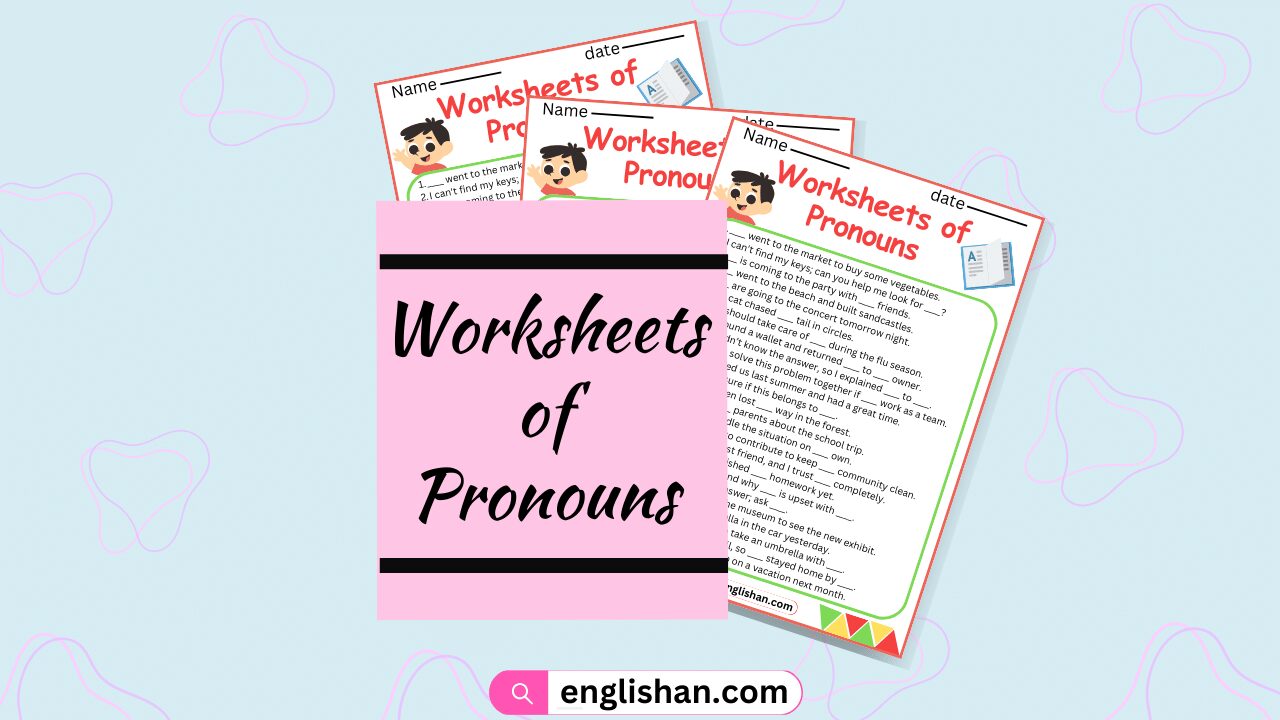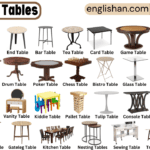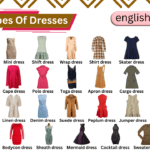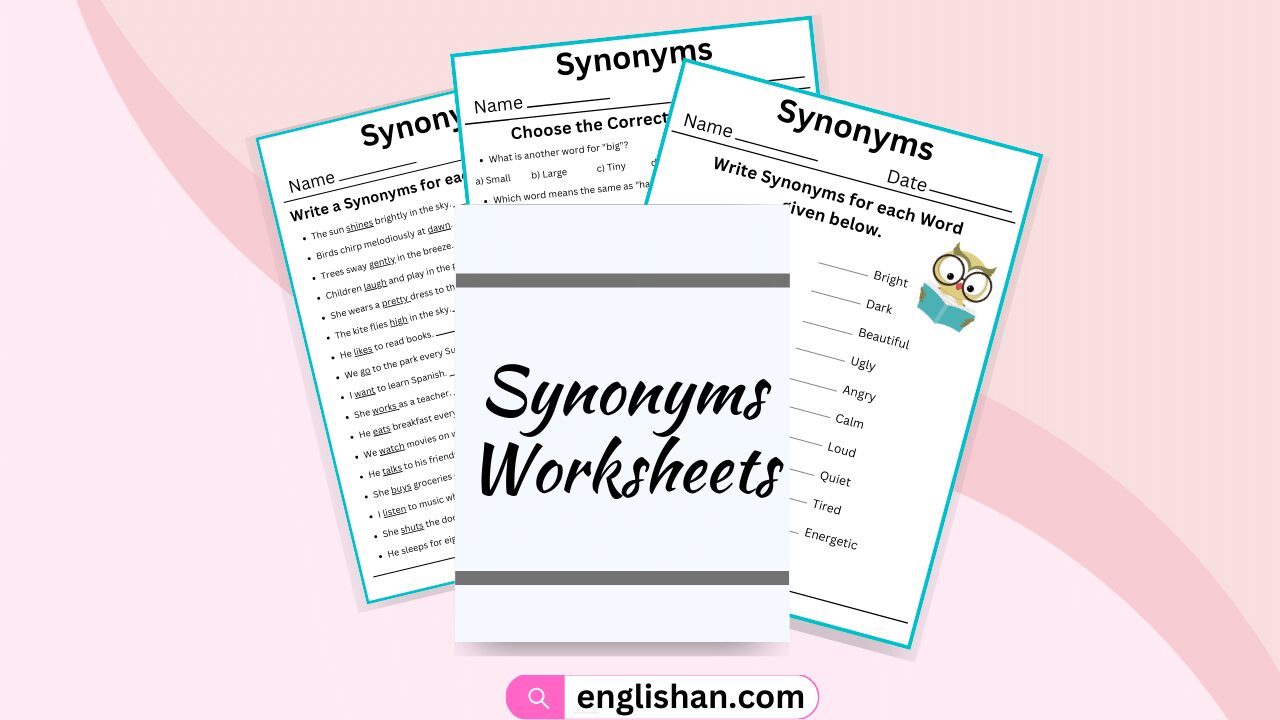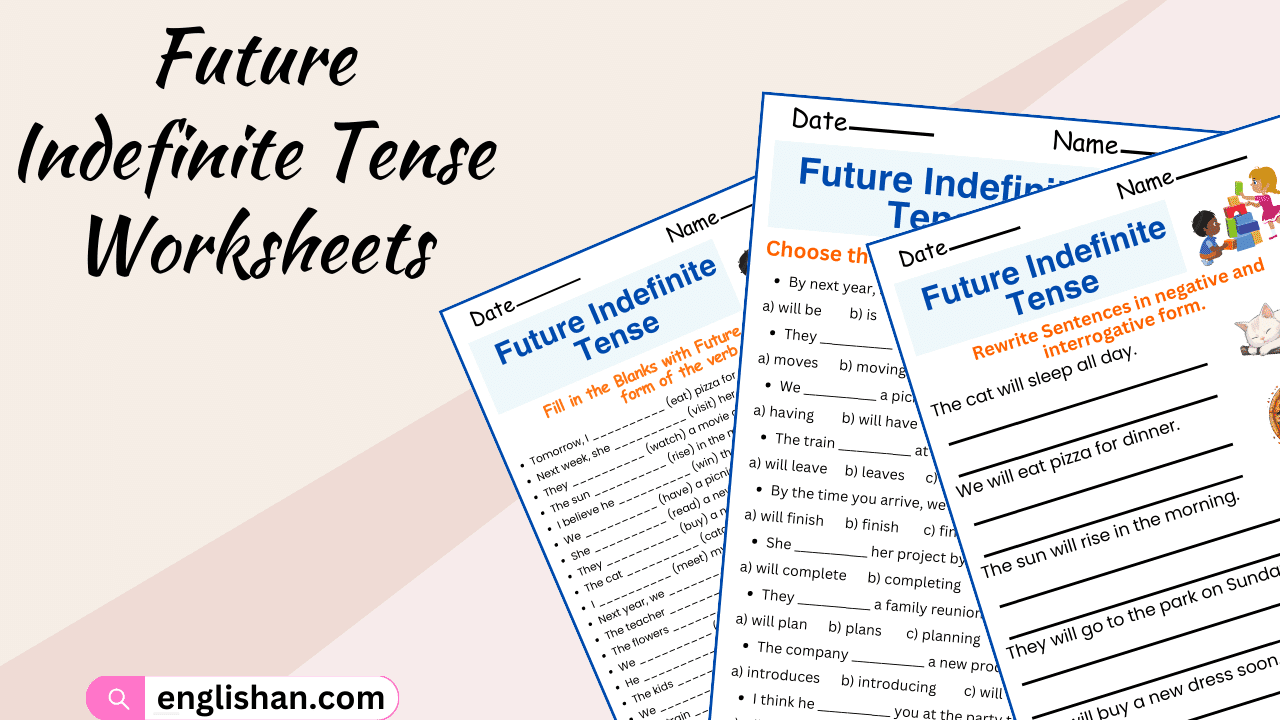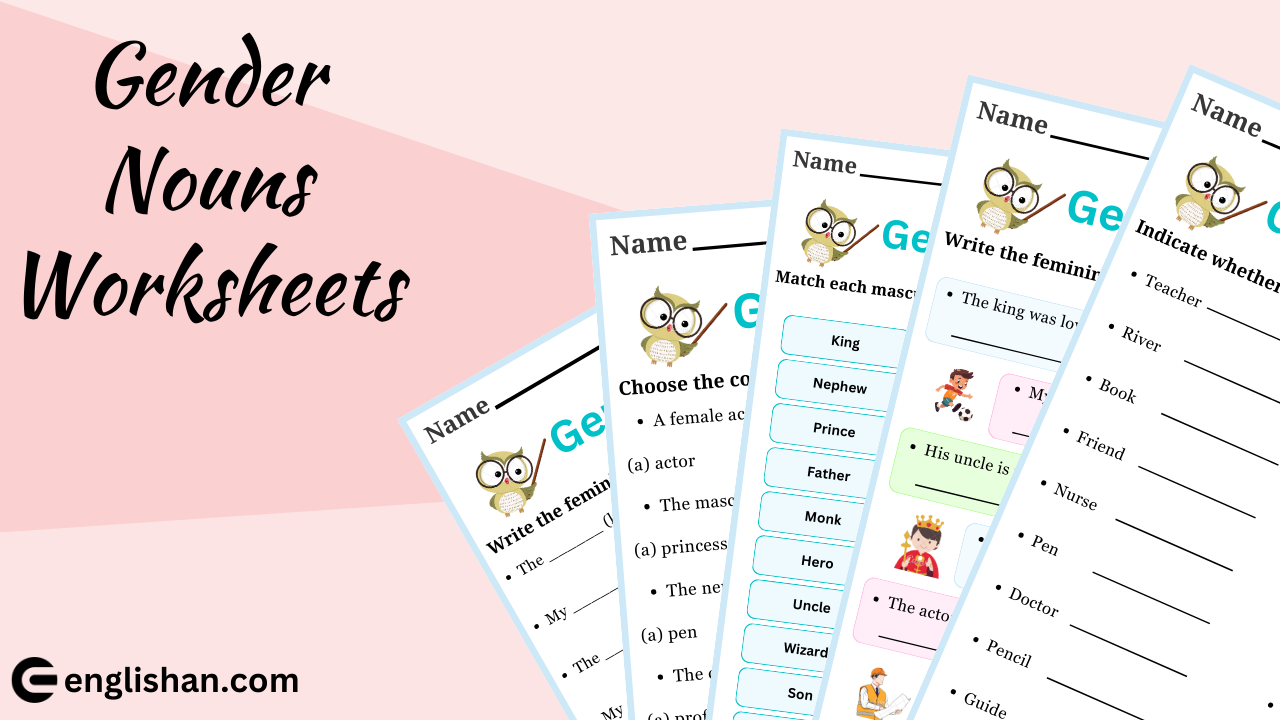Pronoun Worksheets help you avoid repeating the same nouns again and again. If you struggle with using pronouns, these free printable worksheets with answers give ESL learners and students focused practice through tasks like underlining and fill-in-the-blanks using words like he, she, they, and it.
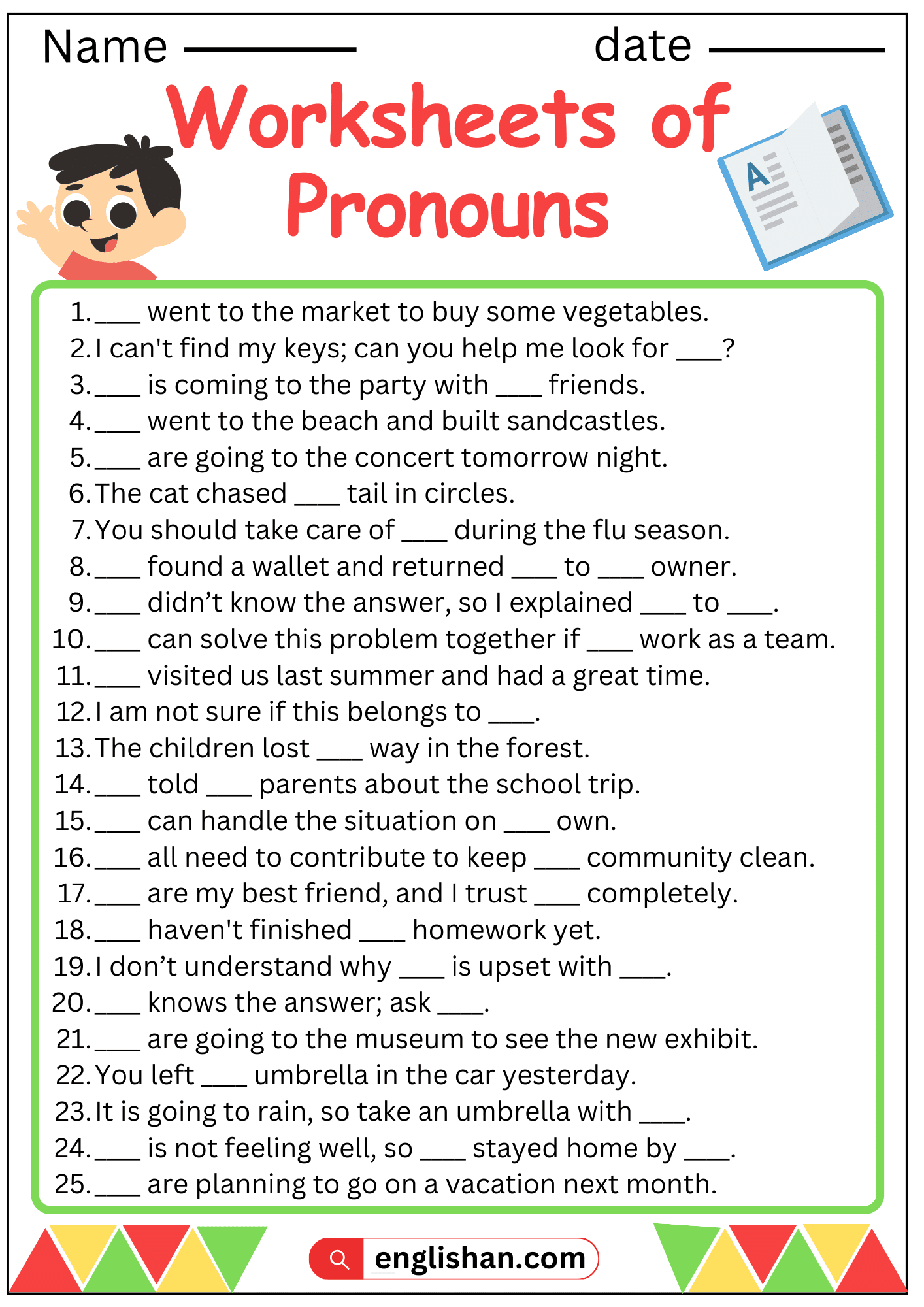
Worksheets of Pronouns
Exercise 1: Identify pronouns in Sentences
- She went to the market to buy some vegetables.
- I can’t find my keys; can you help me look for them?
- He is coming to the party with his friends.
- They went to the beach and built sandcastles.
- We are going to the concert tomorrow night.
- The cat chased its tail in circles.
- You should take care of yourself during the flu season.
- She found a wallet and returned it to its owner.
- He didn’t know the answer, so I explained it to him.
- We can solve this problem together if we work as a team.
- They visited us last summer and had a great time.
- I am not sure if this belongs to you.
- The children lost their way in the forest.
- She told her parents about the school trip.
- He can handle the situation on his own.
- We all need to contribute to keep our community clean.
- You are my best friend, and I trust you completely.
- They haven’t finished their homework yet.
- I don’t understand why he is upset with me.
- She knows the answer; ask her.
- We are going to the museum to see the new exhibit.
- You left your umbrella in the car yesterday.
- It is going to rain, so take an umbrella with you.
- He is not feeling well, so he stayed home by himself.
- We are planning to go on a vacation next month.
- They won the game and celebrated the victory.
- She loves to read books in her free time.
- It doesn’t matter; choose whatever you like.
- You need to believe in yourself to succeed.
- We baked a cake for her birthday.
- They will join us for dinner later.
- He is going to the store; he will buy some groceries for us.
- She is the one who painted the beautiful artwork.
- I have a surprise for you.
- They left their bags in the classroom.
- We finished the project ahead of schedule.
- He is the captain of the soccer team.
- She needs some help with her homework.
- I can’t find my phone; have you seen it?
- They are coming to the party; I invited them.
- It was a long day, but we managed to complete the work.
- You are responsible for your actions.
- He won the first prize in the competition.
- She is going to the doctor for her check-up.
- I don’t know where my keys are; have you seen them?
- They were excited about their upcoming trip.
- It is essential to take care of yourself.
- We had a great time at our family reunion.
- He is the one who found his lost wallet.
- She is my best friend; I trust her completely.
Exercise 2: Identify Pronouns in Paragraph
Yesterday, my friends and I decided to spend the day at the park. We brought our favorite games and had a great time playing together. She loves soccer, so we played a friendly match. He enjoys basketball, so we shot some hoops at the court. They brought a frisbee, and we all took turns throwing it to each other. It was a sunny day, and everyone enjoyed themselves. Later, we sat under a big tree and shared stories. We laughed a lot, and it felt good to be together. After a fun day, we left the park with smiles on our faces, looking forward to our next adventure.
You May Also Like
